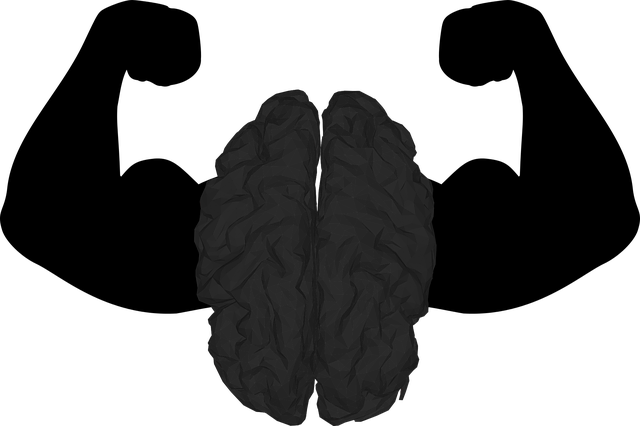Mental health initiatives like Wheat Ridge Mandarin Chinese Speaking Therapy are crucial for diverse communities, addressing unique cultural and linguistic needs. By integrating emotional regulation techniques, self-care routines, and open conversations, these programs empower individuals to improve mental wellness, reduce stigma, and foster a healthier, more inclusive society. Evaluating their success through quantifiable outcomes and qualitative feedback ensures they remain effective and aligned with community needs.
Mental health advocacy initiatives play a pivotal role in fostering community wellness. In this comprehensive guide, we explore the transformative power of such efforts, highlighting key aspects from understanding mental health advocacy’s foundation to its impact on challenging stigma. We delve into specific programs like Wheat Ridge Mandarin Chinese Speaking Therapy, showcasing how targeted initiatives empower individuals and promote mental well-being. Through strategies and success metrics, discover the game-changing potential of mental health advocacy.
- Understanding Mental Health Advocacy: A Cornerstone for Community Wellness
- The Role of Wheat Ridge Mandarin Chinese Speaking Therapy in Advocate Efforts
- Strategies and Programs: Empowering Individuals and Challenging Stigma
- Measuring Success: Evaluating the Impact of Mental Health Advocacy Initiatives
Understanding Mental Health Advocacy: A Cornerstone for Community Wellness

Mental health advocacy initiatives play a pivotal role in fostering community wellness. At its core, advocacy involves raising awareness, challenging stigma, and ensuring access to quality mental health resources for all. For diverse communities like those with a significant Mandarin-speaking population, tailored efforts are essential. Wheat Ridge Mandarin Chinese Speaking Therapy, for instance, exemplifies such an initiative by providing culturally sensitive services that cater to the unique needs of this demographic.
By integrating emotional regulation techniques and promoting self-care routine development for better mental health, these advocacy programs empower individuals to build inner strength. They create safe spaces where open conversations about mental health are encouraged, normalizing discussions and enabling early intervention. Through such initiatives, communities become more resilient, equipped to support one another in navigating life’s challenges, and ultimately fostering a healthier, more inclusive environment.
The Role of Wheat Ridge Mandarin Chinese Speaking Therapy in Advocate Efforts

Wheat Ridge Mandarin Chinese Speaking Therapy plays a pivotal role in mental health advocacy efforts, particularly within the Asian community. With a growing recognition of cultural sensitivity in mental healthcare, this initiative offers specialized services tailored to address the unique challenges faced by individuals who speak Mandarin Chinese and may have limited access to culturally appropriate therapy. By providing therapy in their native language, Wheat Ridge breaks down barriers, fostering trust and encouraging open dialogue about mental wellness.
This approach not only enhances the effectiveness of treatment but also contributes to broader Mental Health Awareness. Through its work, Wheat Ridge encourages self-awareness exercises, helping clients explore and express their emotions in a safe and supportive environment. By raising awareness about mental health issues within the Mandarin-speaking community, this initiative promotes understanding, reduces stigma, and ultimately improves access to care for those in need.
Strategies and Programs: Empowering Individuals and Challenging Stigma

Mental health advocacy initiatives play a pivotal role in shaping public perception and improving access to care. One notable strategy is the integration of specialized therapy services tailored to diverse communities, such as the Wheat Ridge Mandarin Chinese Speaking Therapy program. This initiative addresses the unique needs of individuals within these communities by providing therapy in their native language, fostering a sense of comfort and encouraging open dialogue about mental health.
Through such programs, emphasis is placed on emotional regulation and empathy-building strategies, which are essential tools for challenging stigma. Educating both clients and professionals on risk assessment techniques ensures that those in need receive appropriate support while mitigating potential risks within the therapeutic setting. These comprehensive approaches not only empower individuals to take control of their mental well-being but also foster a more inclusive and understanding society.
Measuring Success: Evaluating the Impact of Mental Health Advocacy Initiatives

Evaluating the success of mental health advocacy initiatives is a crucial aspect of understanding their impact and informing future strategies. Measuring success goes beyond simple satisfaction surveys; it involves delving into quantifiable outcomes and qualitative feedback from participants. For example, the Wheat Ridge Mandarin Chinese Speaking Therapy program can assess its effectiveness through regular client assessments tracking improvements in symptoms, mood, and overall mental well-being.
Community outreach programs, such as those implemented by Wheat Ridge, also gain valuable insights through participant feedback sessions and post-program surveys. This data helps identify areas of improvement, like enhancing self-awareness exercises or confidence-boosting activities, ensuring the initiative remains tailored to the community’s evolving needs. Such evaluations are essential in fostering a robust mental health advocacy ecosystem.
Mental health advocacy initiatives, such as those highlighted by Wheat Ridge Mandarin Chinese Speaking Therapy, play a pivotal role in fostering community wellness. By combining understanding, tailored strategies, and measurable evaluation, these programs empower individuals while challenging stigma. As we move forward, continuing to support and expand these efforts is essential for creating a more inclusive and supportive society for everyone’s mental health.














